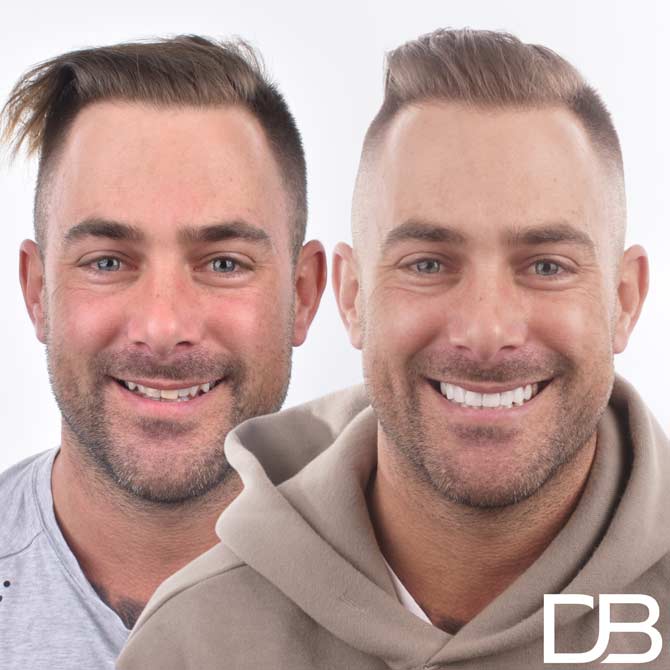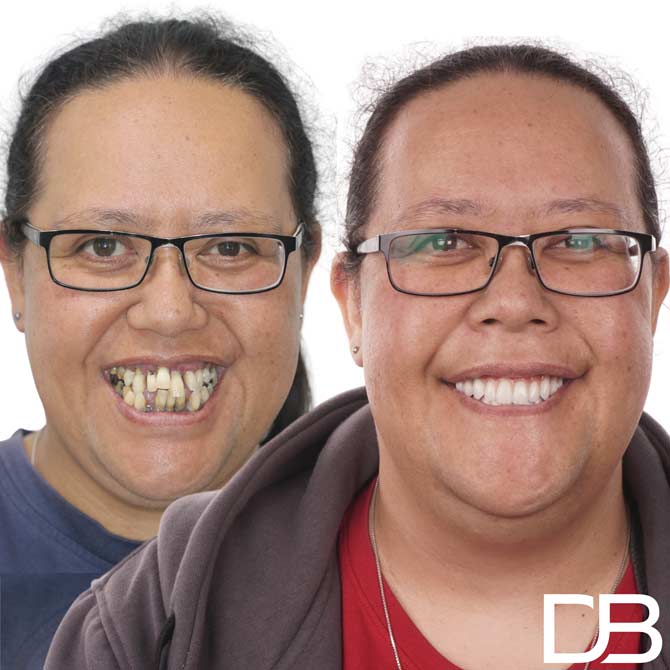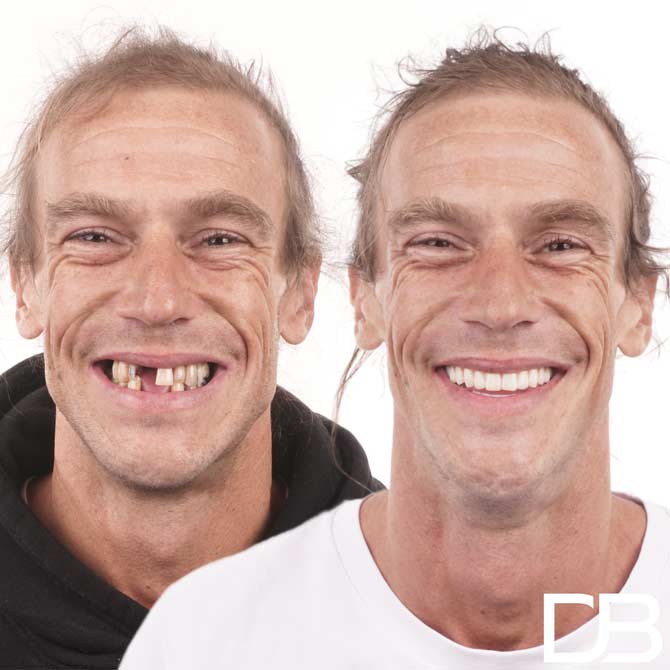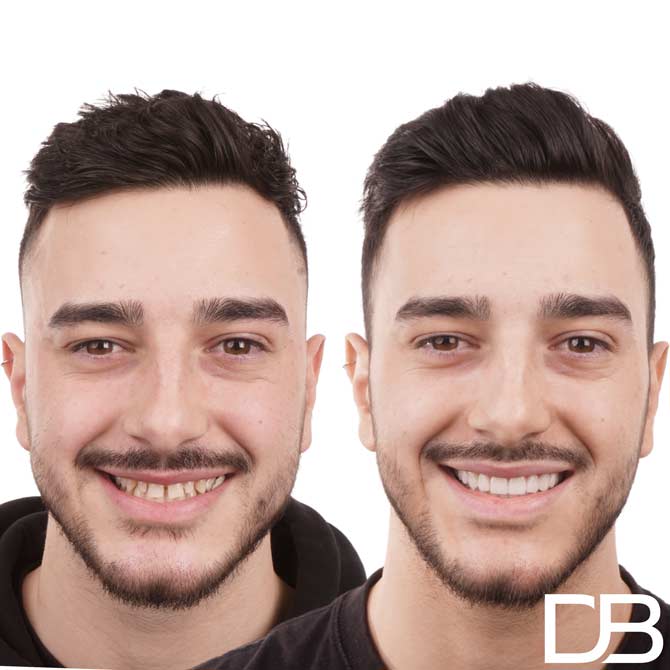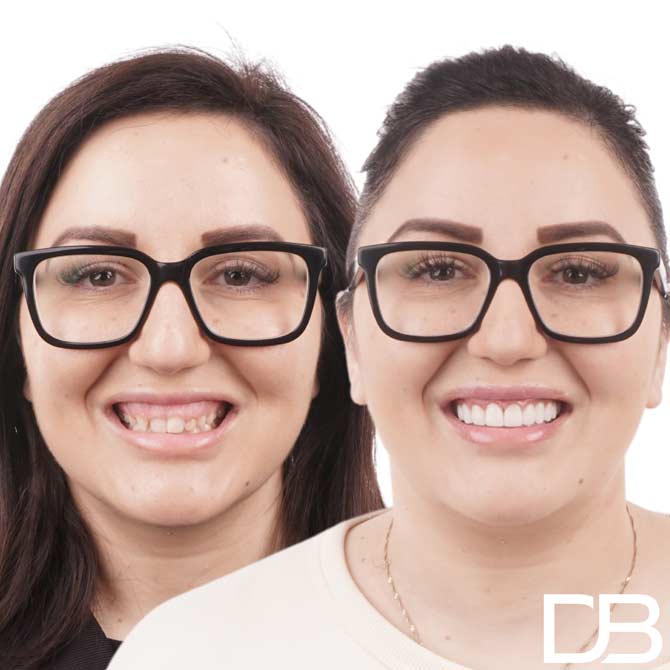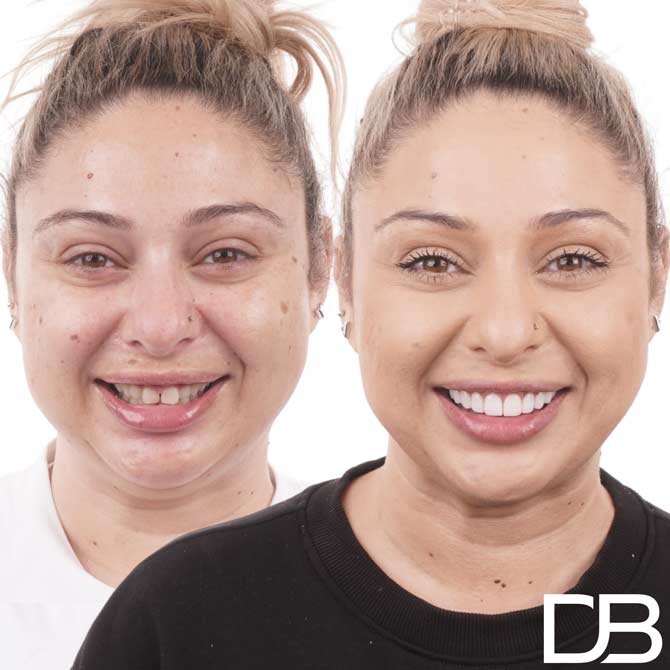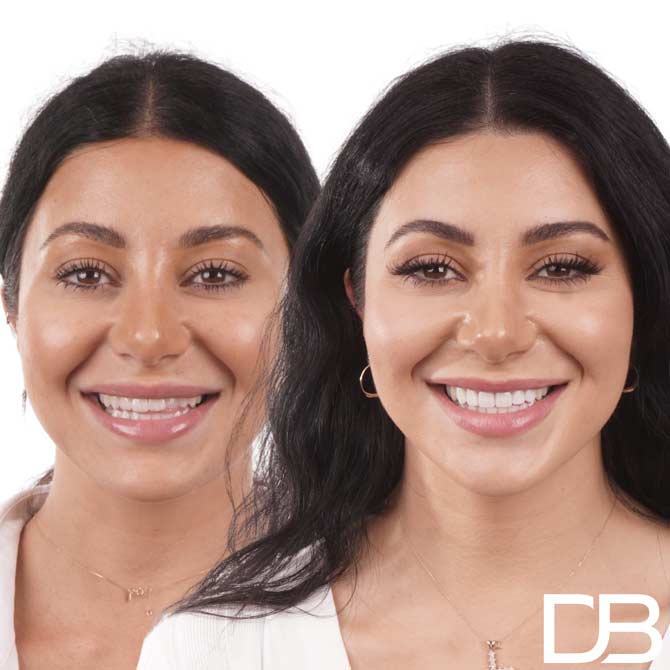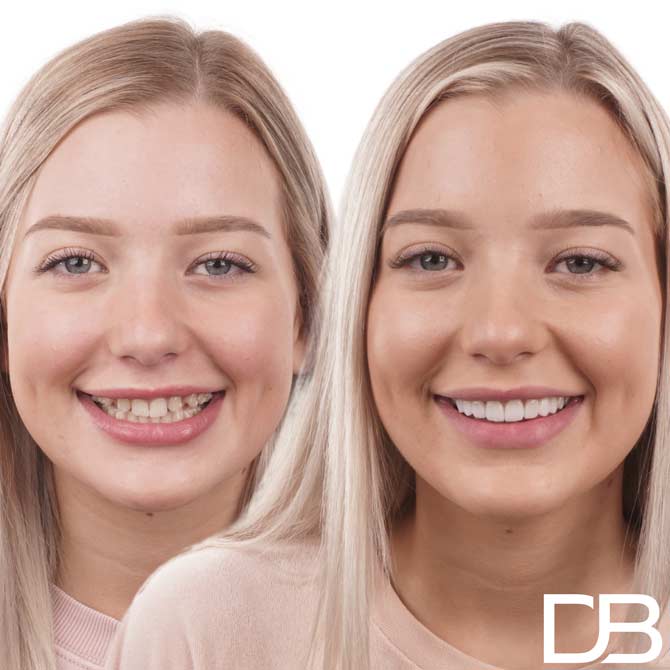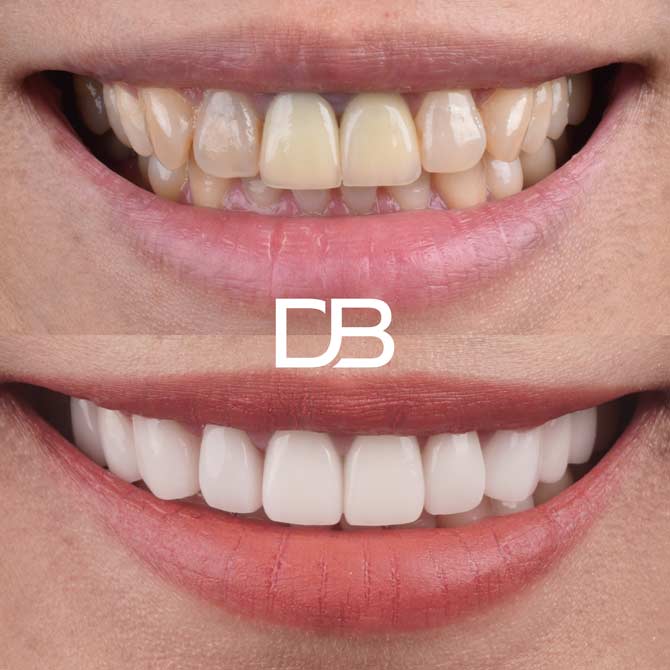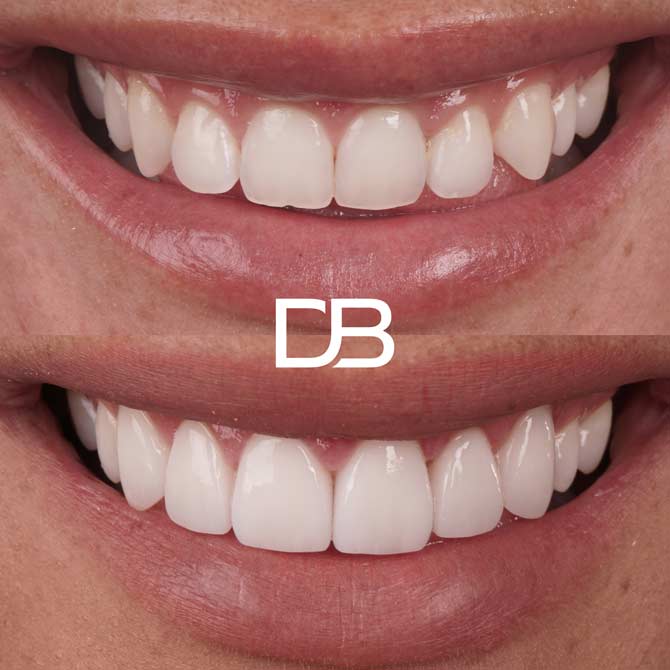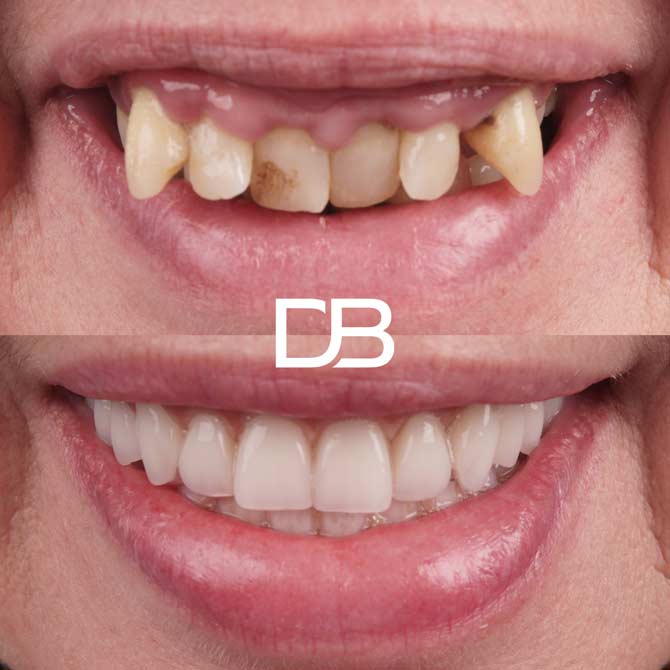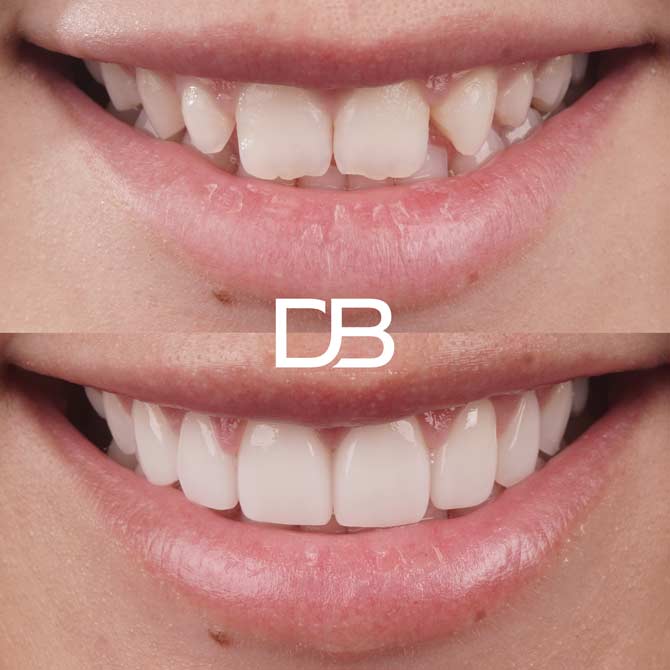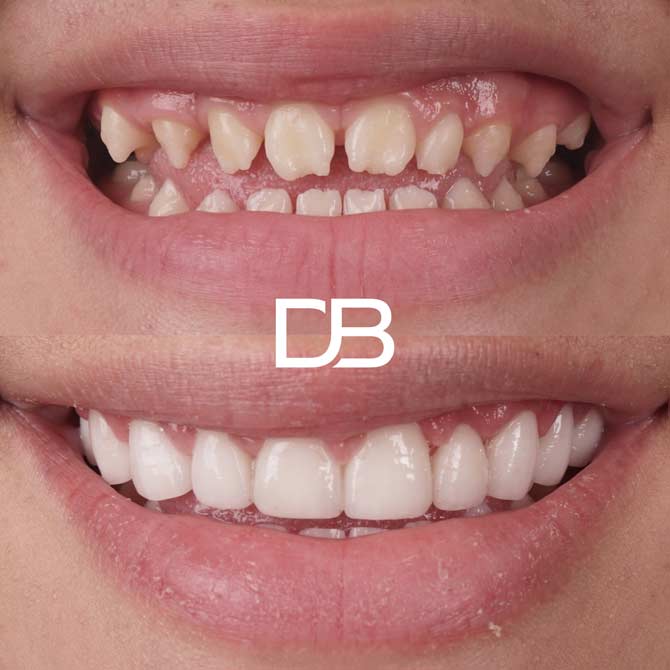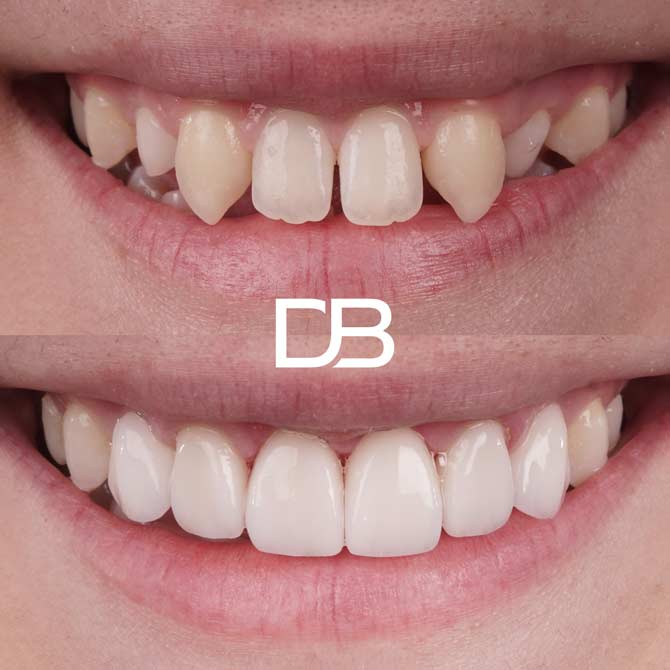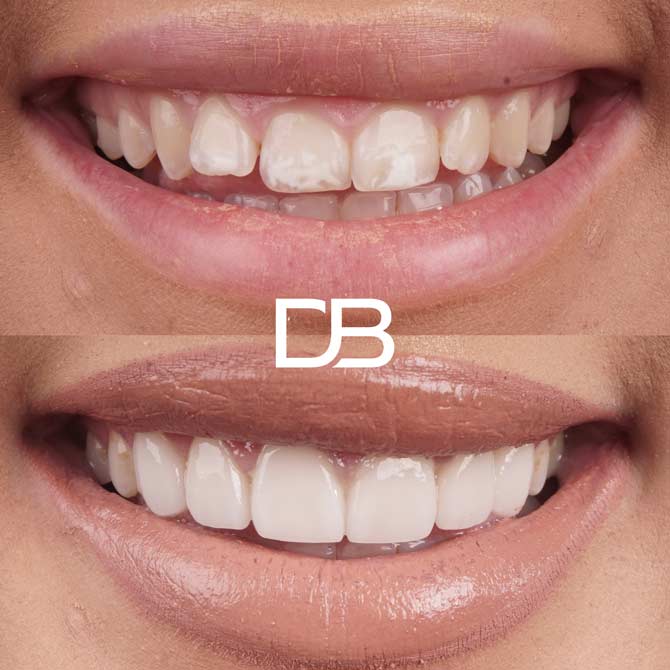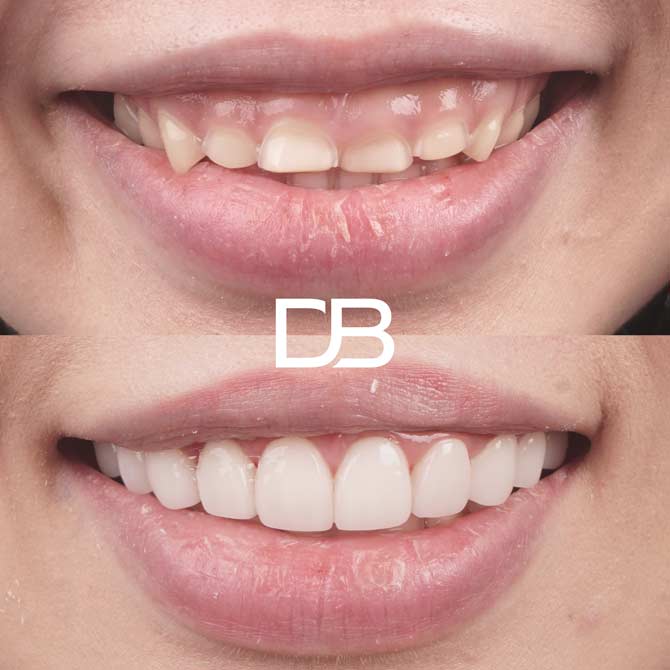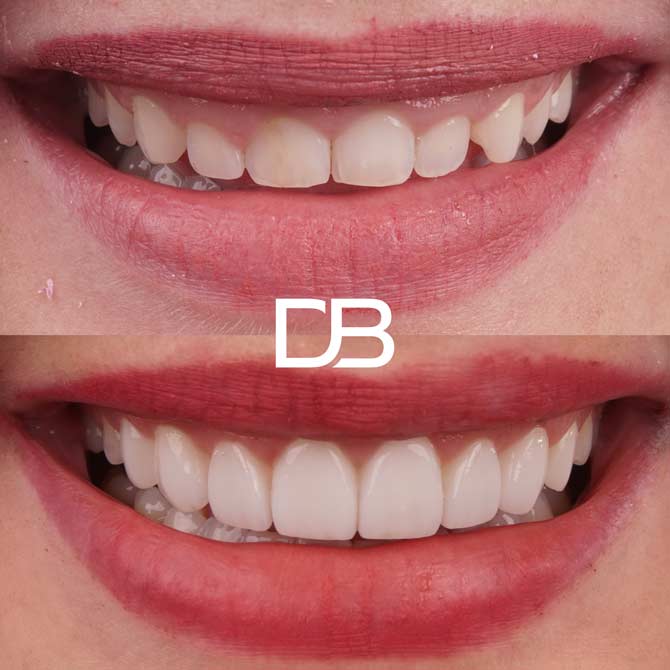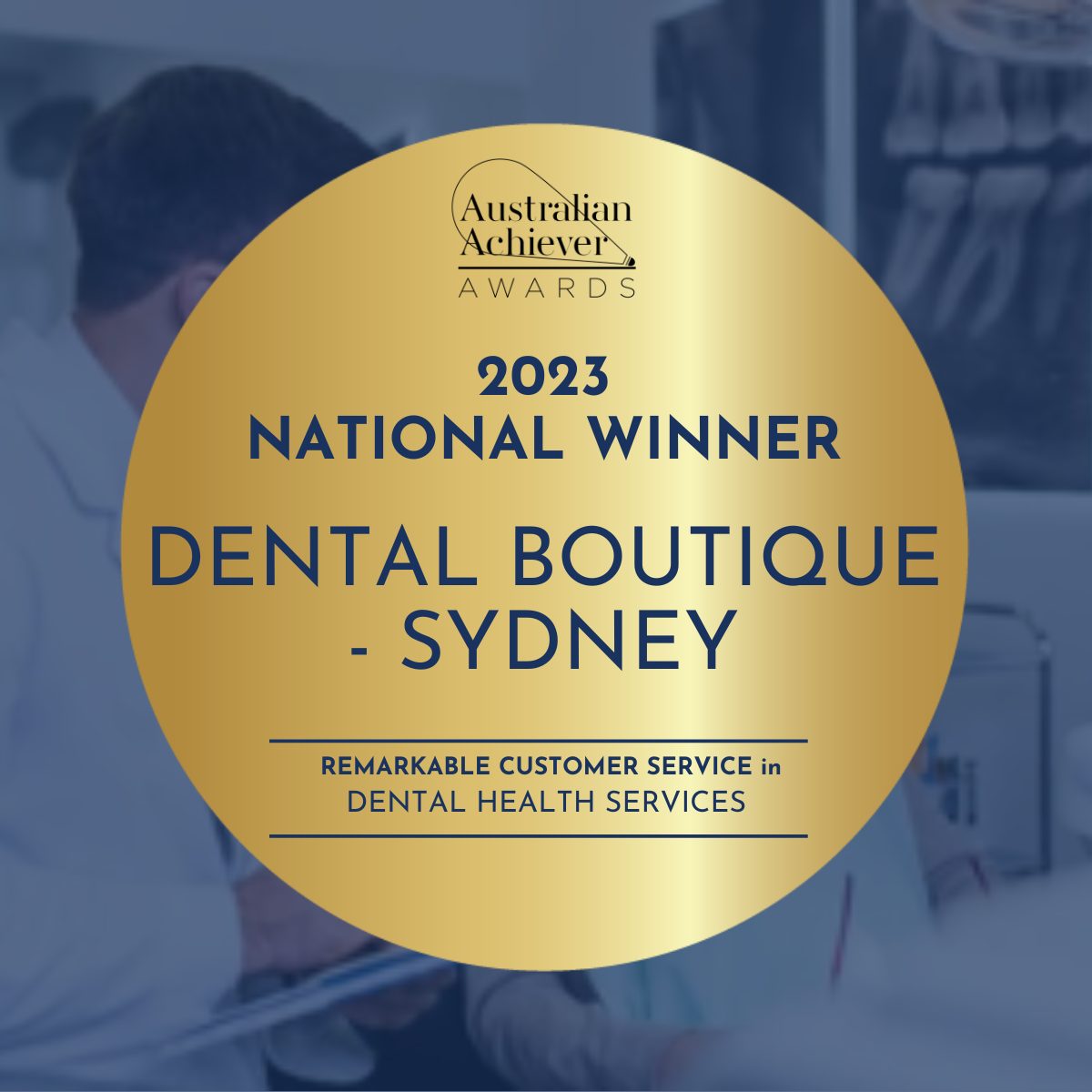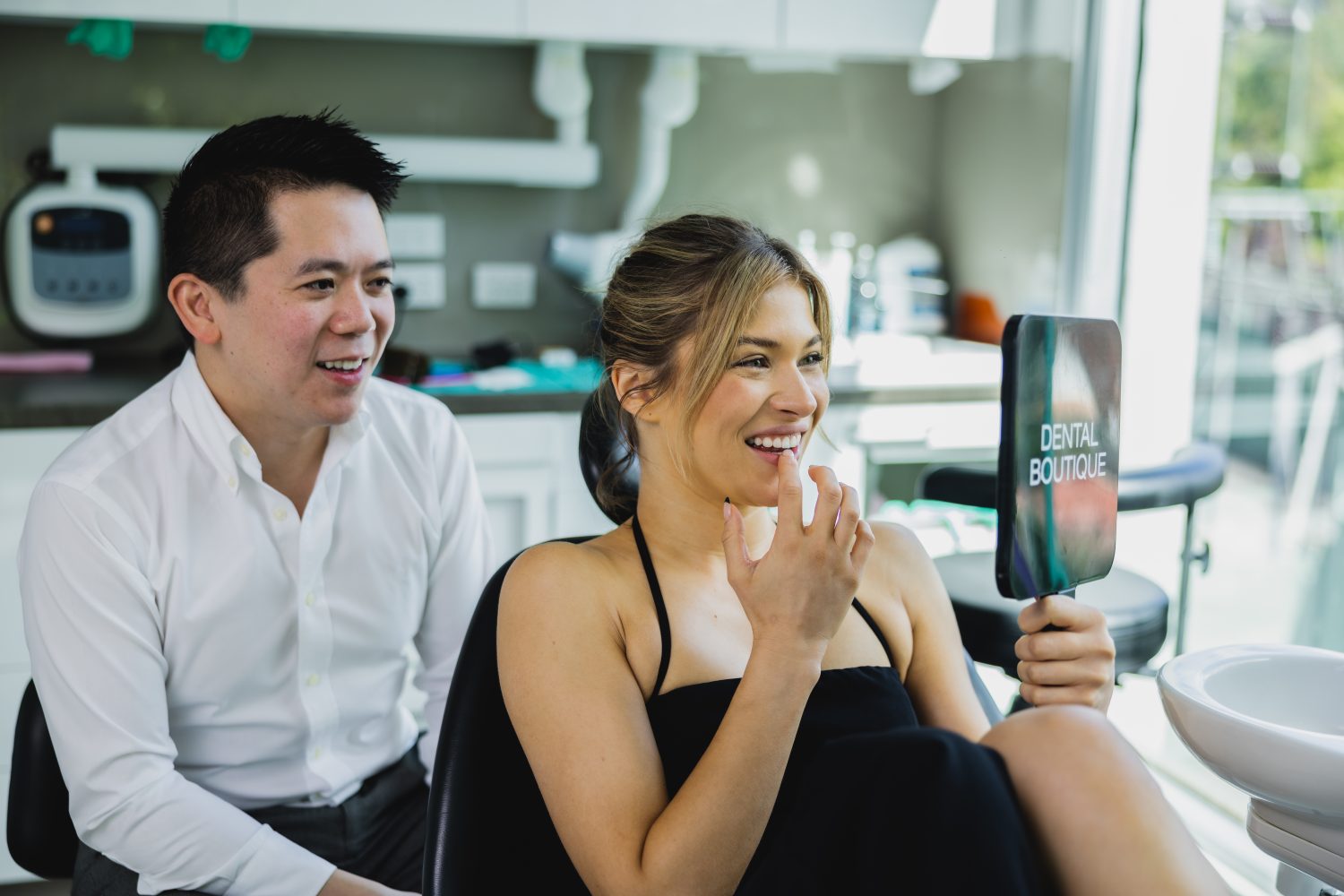
Congratulations on completing your cosmetic treatment!
Now that you’ve finished your smile makeover, the next thing you should focus on is keeping your dream smile beautiful for years to come.
At Dental Boutique, we often get asked by our patients how to take care of their new teeth.
Whether you’ve just had composite edge bonding, composite veneers or porcelain veneers, aftercare is almost exactly the same.
We always make sure to provide a thorough step-by-step guide at the end of each cosmetic treatment, and in this article, we’ll share our comprehensive guide to porcelain and composite veneer aftercare with you.
Porcelain & Composite Veneer aftercare: at home.
Let’s begin with the most important part of veneer aftercare: what you do at home. We’ll discuss how to clean and care for your veneers, and what foods to pass up on.
Do you brush veneers?
You may think because your natural teeth aren’t so exposed that you don’t need to brush or floss as much, but that’s far from the truth.
Veneers need daily cleaning to stay in good condition; to maintain your beautiful smile, brush your teeth twice a day and floss nightly.
Underneath your veneers are healthy teeth, and we need to keep them that way.
Brushing and flossing will ensure no food is stuck anywhere, which can lead to decay on or between the teeth.
It will also keep your gums healthy, keeping gingivitis or gum disease at bay.
How do you brush veneers?
Veneer aftercare requires gentle care.
That means throwing your hard-bristled brush away and opting for a gentle electric toothbrush or a soft-bristled brush.
When brushing, use gentle, circular motions to remove any plaque build-up.
It’s also best to choose toothpaste that isn’t abrasive. Your dentist will be best placed to recommend a toothpaste suitable for your veneers.
When it comes to flossing, any type of floss will do. Whether you prefer string floss or water floss is fine; neither will scratch or dent your veneers.
Can you eat hard food with veneers?
If you’ve recently gotten veneers, you may be dreading chipping a tooth on hard food. And the reality is, if you’re not careful, it may happen.
As part of veneer aftercare, you have to be careful with what foods you eat.
Super crunchy foods like pork crackling or nuts are common culprits for broken veneers and should be avoided.
Be mindful of any foods that contain pips and seeds, like olives, apricots or apples. A nasty bite on these may cause some damage to your new veneers too.
Foods to avoid with porcelain or composite veneers
 Aside from super hard foods or fruits with pips, the best veneer aftercare includes skipping out on heavily staining foods.
Aside from super hard foods or fruits with pips, the best veneer aftercare includes skipping out on heavily staining foods.
Heavily staining foods don’t just stain your teeth; they stain your veneers, too. And while you can whiten teeth, unfortunately, you can’t whiten veneers.
So, if you want to keep your veneers the shade you carefully picked out, you’ll have to swap red wine for white, coffee for green tea, and turmeric for cumin powder.
If consumed regularly, these heavily staining foods and beverages can cause discolouration around your bonding and veneers, particularly composite veneers.
To reduce the amount of staining, swish water or brush your teeth soon after you’ve consumed them. A mouthwash can also be helpful too.
Porcelain & Composite Veneer aftercare: Professional care.
On top of caring for your veneers at home, seeking professional care from your dentist can help maintain beautiful-looking veneers.
Protective Splints
After receiving your cosmetic treatment, you’ll likely receive a protective mouth guard or splint to protect your teeth.
A splint or mouth guard keeps your teeth separate while you sleep, preventing them from touching or grinding.
Not everyone grinds their teeth regularly, but this habit can develop in times of stress or anxiety, which everyone will experience at some point in life.
Whether you’re aware of grinding your teeth or not, doing so can cause serious damage to your veneers and teeth.
Our teeth generate a strong biting force that helps us bite into carrots and nuts.
It takes about 20 kg of force to bite into a carrot, but our teeth have the ability to generate 120 kg of force!
Imagine what that sort of force could do to veneers, especially if we’re unconscious.
Therefore, a mouth guard is a great idea to prevent any excessive force from damaging your new smile.
Regular dental visits
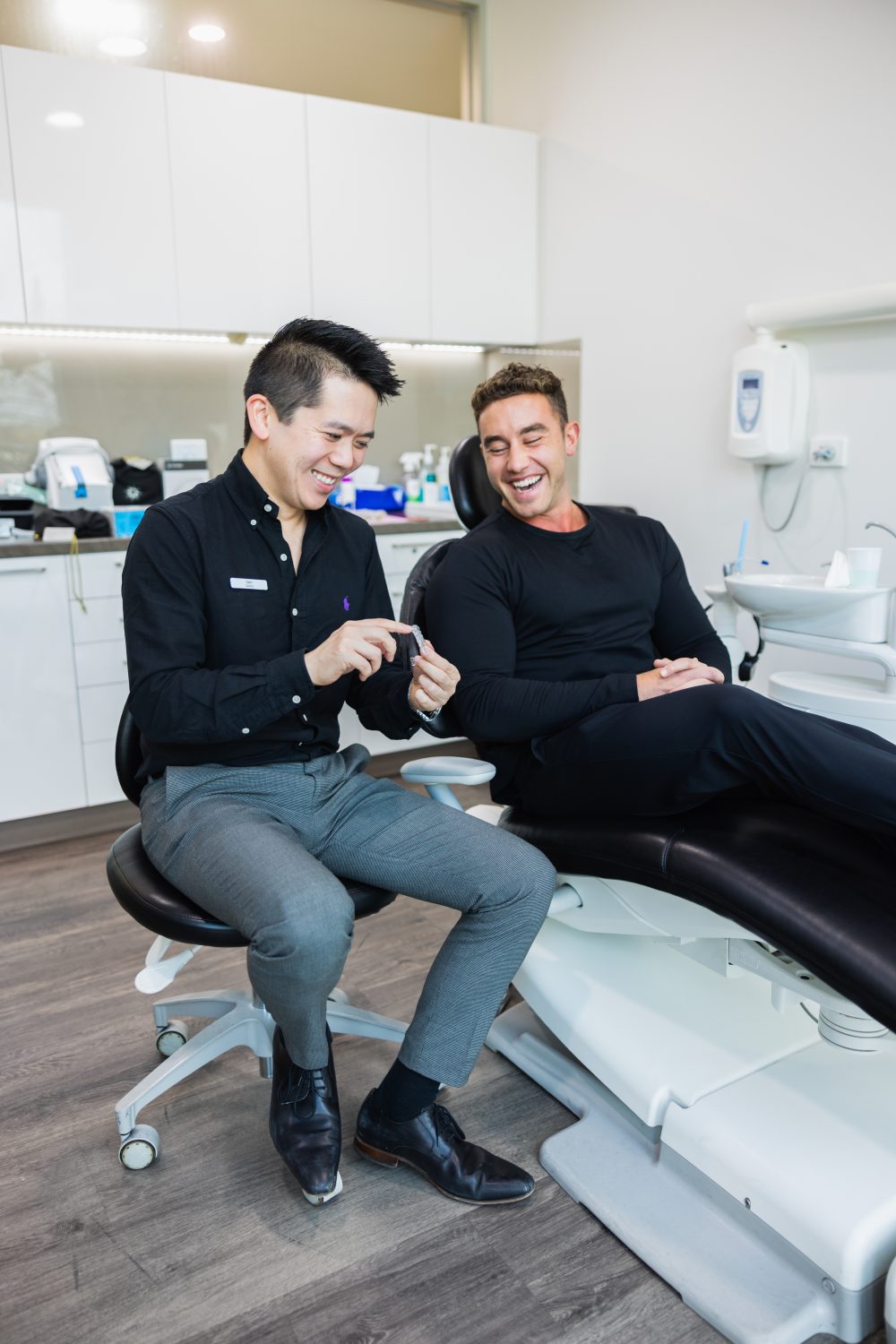 Finally, as part of your veneer aftercare, ensure you see your dentist every 6 months to address early issues before they become problems.
Finally, as part of your veneer aftercare, ensure you see your dentist every 6 months to address early issues before they become problems.
All of our dentists are trained in looking after cosmetic treatments, and we use special instruments to make sure we don’t scratch the surface or damage any bonding or veneers.
Detecting decay or gum issues early can prevent you from requiring further treatment or even having to replace your cosmetic treatment.
Similar to a leaking tap, if you leave it for too long, the tap will likely burst — so you might want to get a plumber to fix the leak before it becomes too late.
Veneer aftercare summary
Veneer aftercare is quite simple yet crucial in maintaining your new, beautiful smile.
To recap:
- Brush twice a day with an electric brush and floss nightly
- Avoid heavily staining food and drinks, as well as very crunchy food or fruits with seeds or pits
- Wear a splint or mouth guard nightly to prevent teeth from touching or grinding during the night
- Visit the dentist every 6 months to maintain your cosmetic treatment.
Want to learn more about veneers? Peruse our blogs or book a consultation with our expert team today.

